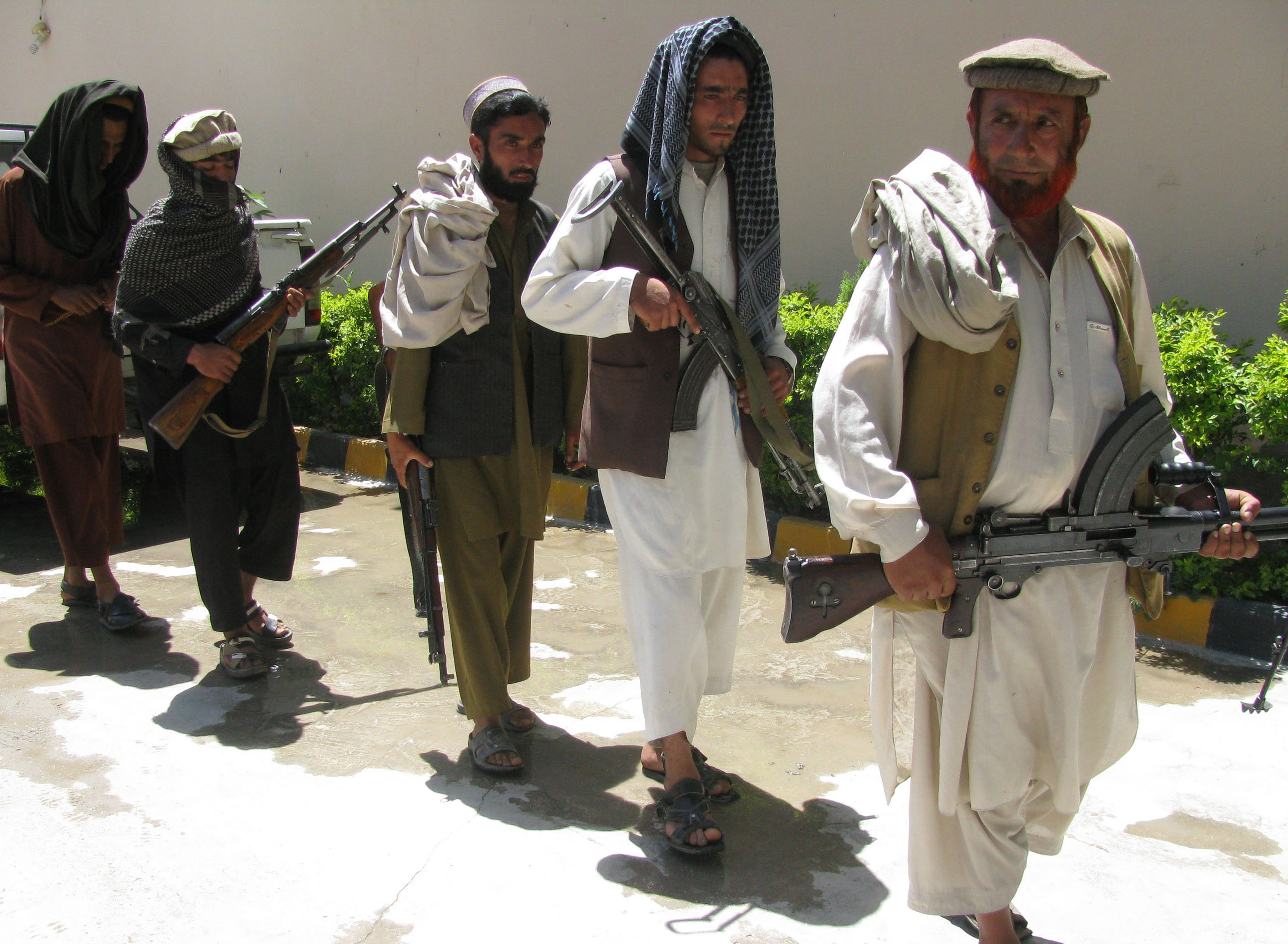Taliban Tightening Grip on Afghanistan One Year after Taking Power
Since the seizure of Kabul on 15 August 2021, the Taliban have been consolidating power by recreating the Islamic Emirate of Afghanistan of the 1990s. The Taliban government’s limiting of human rights, especially of women, and constant ties to terrorist organisations reduce the chances of international recognition. Afghanistan has not yet become a centre of global terrorism or a source of mass migration, but the suspension of economic support has deepened the humanitarian crisis. Western partners, including the EU and the U.S., should pursue humanitarian aid and consider unfreezing Afghan currency reserves.
 Tahir Safi/ Zuma Press/ FORUM
Tahir Safi/ Zuma Press/ FORUM
One year after taking power in Afghanistan, the Taliban government has still not been recognised by any state. The Taliban did not meet the most important conditions of the UN resolution of 17 September 2021 on the establishment of an inclusive government, respect for women's rights, and refraining from sheltering terrorist organisations in Afghanistan. The dramatic economic situation remains the government’s main challenge.
Security Situation
The Taliban takeover in August 2021 ended the 20-year civil war. Despite the persistence of local sources of armed opposition (including the National Resistance Front, NRF, in the Panjshir Valley) and occasional factional battles, the Taliban have strengthened control over almost the entire territory of Afghanistan. The greatest military threat remains ISIS-Khorasan Province (ISIS-K), numbering between 1,500 and 4,000 fighters. It is responsible for most of the terrorist attacks on Taliban and civilian facilities, including schools, hospitals, and places of worship, particularly targeting the Shi'ite Hazara minority. From 15 August 2021 to 15 June this year, 2,106 civilian casualties were recorded (700 killed, 1,406 injured) against 8,820 civilian casualties in 2020 and 5,183 in the first half of 2021. While the ISIS-K attacks undermine the Taliban’s legitimacy in terms of the restoration of peace, the security situation today is still relatively the best in a decade.
The killing of Al-Qaeda leader Ayman al-Zawahiri by a U.S. drone on 31 July confirmed allegations that the Taliban had not severed contacts with the organisation. However, in return for hospitality and security, Al-Qaeda had been focusing on supporting the Taliban and has not engaged in activities that could harm the hosts or constitute a breach of the 2020 agreement with the U.S. While the Taliban fight ISIS-K, just barely, other extremist regional organisations that were already present in the country enjoy more freedom, including the Pakistani Taliban (TTP), Islamic East Turkestan Movement (ETIM), Islamic Movement of Uzbekistan (IMU), Lashkar-e-Toiba (LeT), and Jaish-e-Mohammed (JeM). While the Taliban victory brought a moral and ideological boost to Islamist organisations around the world, Afghanistan has not become a major destination for foreign terrorist fighters. According to UN experts, the organisations in Afghanistan do not pose a terrorist threat to the U.S. and its allies, at least for the next 1-2 years. However, they are still the main problem for neighbouring countries (especially the TTP for Pakistan).
End of Democracy
The Taliban have rejected the democratic constitution and restored the Islamic Emirate of Afghanistan, based on Sharia law (in the less stringent interpretation of the Hanafi school). The highest authority is the spiritual leader Emir Hibatullah Akhundzada, based in Kandahar, while the Kabul government, headed by Mullah Hasan Akhund, is in charge of the country’s governance. Despite calls for an inclusive and representative government suitable for a multi-ethnic state, the new government consists almost entirely of mullahs and Pashtuns, marginalising other minorities (including Tajiks, Uzbeks) and completely bypassing women. According to the UN, there are also at least 41 people in the government and in senior positions in the administration subjected to individual UN sanctions.
Despite the announcement on 17 August 2021 about amnesty for members of the previous system, there have been acts of revenge, including murder or persecution of former representatives of the security forces and administration. The UN has documented at least 160 extrajudicial killings, 178 arbitrary arrests and detentions, 56 cases of torture and ill-treatment of persons associated with the previous authorities. Similar acts of violence affect people suspected of having ties to ISIS-K, the NRF, as well as common criminals.
Women’s rights to work, education, and mobility have been increasingly restricted in recent months. Girls over sixth grade were banned from education, and despite promises to return them to school in March this year, the Taliban withdrew from announcing it at the last minute. In December last year they ordered that women going on a longer journey (over 78 km) must be assisted by a man. In May, women were told to completely cover their bodies in public places. It is also difficult for women to return to work and they are urged to quit jobs where they can be replaced by men.
The end of democracy in Afghanistan also means a serious restriction of freedom of media and expression, as well as the right to peaceful protest. Demonstrations are brutally dispersed and activists persecuted. Since August 2021, about 200 media organisations have ceased their activity, and about 7,000 media employees have lost their jobs.
Deepening Economic Crisis
The freezing of central bank assets and the suspension of foreign development and military aid, which previously accounted for 75% of the budget, led to an economic and humanitarian crisis. According to UN estimates, the country’s economy has shrunk by 30-40% since August 2021, inflation for basic household goods has reached 50%, and unemployment has jumped from 13% in 2021 to 40% this year. Currently, at least 59% of the population (24.4 million) need humanitarian aid to survive (up from 18.4 million in early 2021), and the UNDP estimates that this figure will be 97% by the end of the year. In January, the UN announced its largest humanitarian appeal in history, amounting to $4.4 billion for 2022 (plus an additional $3.42 billion to ensure the functioning of public services). Until 2 August this year, only 44.6% of the humanitarian needs were met ($1.98 billion). The funds are channelled through the UN’s agencies in the country for food aid and basic public services (schools, hospitals), bypassing Taliban structures. At the same time, the Taliban managed to restore the state’s own revenues from customs, exports, and taxes to the level of mid-2021, which makes it possible to administer the country, but not sufficient to end the crisis.
Despite the extremely difficult economic situation, there has been no mass emigration of Afghans nor a new refugee crisis, mainly due to the blockade of borders by neighbouring countries, restrictive Taliban policy, and difficulties in accessing documents. According to UNHCR, 180,000 Afghan refugees have registered in neighbouring countries since 1 January 2021 (including 118,000 in Pakistan), but many more left irregularly. Pakistan estimates that from 15 August 2021, it has received 250,000 Afghans, while Iran since 2021 has taken in between 0.5 and 1 million. It should be remembered that these numbers include regular border traffic, and most of those fleeing to Iran are returned. Although the number of Afghans submitting asylum applications in the EU has doubled (to around 8,500 per month since January this year), they still account for only around 10% of all asylum seekers.
Conclusions and Perspectives
The Taliban’s gradual limitation of human rights and ignoring the appeals of the international community show that, contrary to announcements, the group is recreating a version of their radical rule from 1996-2001. This confirms the strengthening of hardliners among the Pashtuns from Kandahar under the leadership of Emir Hibatullah and supported by the militant Haqqani Network. The lack of alternative, significant military and political forces in the country means that, unless the Taliban splinter, the risk of a civil war or the group losing power in the foreseeable future is low. International sanctions have not prompted them to make concessions and mainly have hit the public, while the Taliban’s vulnerability to foreign pressure will be reduced even more as it restores domestic sources of income.
The failure to recognise the Taliban government while engaging them practically through foreign partners creates an artificial situation that limits the possibilities for normal economic and political cooperation. Therefore, it cannot be ruled out that in the near future some states (e.g., Pakistan) may recognise the Taliban government in order to obtain concessions, whether political (e.g., limiting the activities of terrorist organisations) or economic (e.g., raw material extraction). The confirmation of Al-Qaeda’s presence in the country is likely to stiffen the policy of Western countries, making it even more difficult to lift the sanctions. In this situation, the priority for Western countries should be to continue the promised humanitarian aid, especially in the perspective of the coming winter. To end the banking crisis and to regain financial liquidity, which would enable the development of economic activity, it is crucial to unfreeze Afghan currency reserves, mainly by the U.S.


